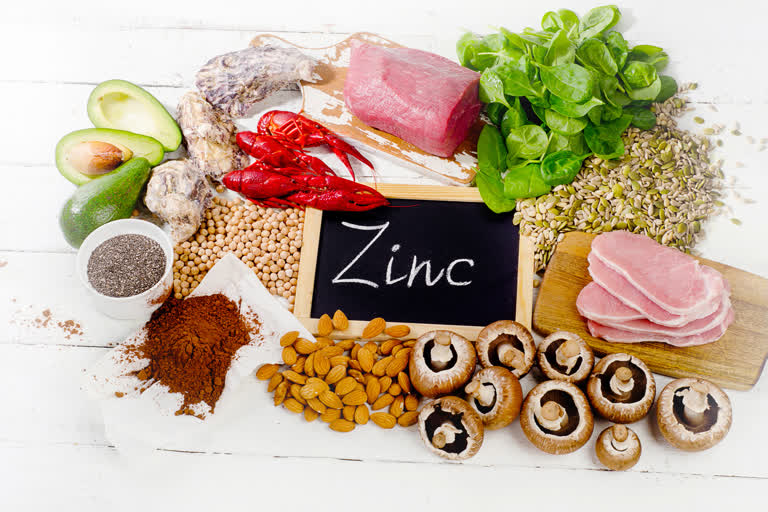Since our body cannot produce zinc on its own, a constant external supply of this nutrient is required by our body. Zinc is responsible for several functions in the human body like boosting the immune system, healing wounds, enhancing metabolic functions, etc. It also helps in the proper growth of a child and is required by our body for protein and DNA synthesis. In Ayurveda too, Jasada Bhasma or Zinc ash is an important preparation, particularly used in the treatment of diabetes. Zinc can be found in the foods we eat day-to-day in our life. Further in this article, you will know more about the food sources of zinc.
How Much Zinc Is Required?
We don’t require zinc in huge quantities but on an average, the daily zinc recommendation is as follows:
- Children 6 months to 13 years: 2-8mg
- Teenagers 14 to 18 years: 9-11mg
- Adults over 18 years: 8-11mg
- Pregnant and breastfeeding women: 11-12mg
- Increase the quantity with age. You can also consult a paediatrician to understand your child’s zinc requirements.
- Depending upon the gender.
- Males require 2-3mg more zinc than females.
Zinc Deficiency
If zinc is not obtained by our body in the required amounts, it can slow the growth in children. Zinc deficiency may also delay the sexual development and cause impotence in men. Other signs of its deficiency may include:
- Loss of appetite
- Hair thinning
- Diarrhoea
- Skin rashes and other skin conditions
- Slower wound healing
- Weight loss
- Eye and skin sores
Benefits Of Zinc
- Common Cold
The National Institutes of Health, US (NIH) states that some studies suggest that zinc lozenges or syrup (but not zinc dietary supplements in pill form) help speed recovery from the common cold and reduce its symptoms if taken within 24 hours of coming down with a cold. However, more studies are required for the same. - Acne
Studies have shown that zinc helps in keeping the skin healthy and helps in curing acne problems. It also protects our skin from heat and cold. It also helps in reducing skin inflammation. - Diarrhoea
Diarrhoea has proven to be fatal amongst children under the age of 5 years. Studies suggest that taking zinc as a dietary supplement can help in reducing the symptoms of diarrhoea in children. - Immune System
Zinc has known to boost one’s immune system. A good immune response means that the body is able to fight foreign bodies like viruses and bacteria that can cause certain infections. - Age-related Macular Degeneration (AMD)
AMD is an eye disease which causes vision loss over time. Research has shown that consumption of zinc can help in slowing down the progression of AMD.
Sources Of Zinc
Here is a list of food sources that will help in fulfilling your zinc requirements
- Meat (beef, lamb, pork)
- Shellfish (oyster, crab, clams)
- Nuts (cashew, almond, peanut)
- Seeds (pumpkin, sesame and hemp seeds)
- Milk and other dairy products
- Eggs
- Kidney beans, lentils, chickpeas, etc.
- Whole grains (oats, quinoa, wheat)
- Vegetables (potato, kale, peas, asparagus)
- Dark chocolate
Is Too Much Zinc Harmful?
Yes, consumption of too much zinc can negatively affect your body. Too much zinc can result in nausea, diarrhoea, abdominal cramps, headache, lower immunity, decreased levels of good cholesterol, etc.
Therefore, zinc should be consumed only in the required amounts. If you are not sure, consult your doctor to know how much zinc is required by your body, according to your age, other health-related conditions and if zinc may interfere with your on-going medications. You can also ask them if zinc supplements need to be taken.



